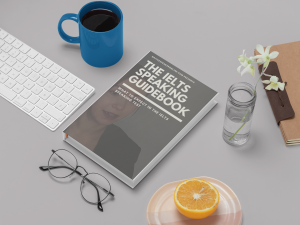If you want to get a high band in the IELTS Speaking test, you have to show that you can use a variety of grammatical structures (See Grammatical range and accuracy). Many candidates try to use the present perfect tense because they think it will help them get them a high band — but they often use it incorrectly. In this post we will look at four wrong ways to use the present perfect.
Avoid these present perfect mistakes
Never use the present perfect if …
- you say ‘when’ something happened. For example:Last year, *I have been* on holiday.
If we use a past time expression (last year), we normally use the past simple:
Last year, I went on holiday.
- you talk about a repeated event that cannot happen again in the future. For example: Marilyn Munroe *has been* married several times.
Marilyn Munroe is dead, so there is no possibility that she will get married again. In this context, we use the past simple:
Marilyn Munroe was married several times.We use the present perfect if there is a possibility that the repeated event will happen again in the future, for example:
Nicole Kidman has been married several times.
- you talk about a change that finished in the past: The economy in my country *has improved* a lot, but now it is stagnating.
In this context, you should say:
The economy in my country improved a lot, but now it is stagnating.We use the present perfect to talk about changes that started in the past and continue to the present:
The economy in my country has improved a lot. People are much wealthier than in the past.
- you talk about ‘old information’, for example:“What was the weather like yesterday?” “It *has been* sunny.”
If there is no connection with the present, we must use a past tense:
“What was the weather like yesterday?” “It was nice and sunny.”
How to use the present perfect correctly
If you want to use the present perfect correctly, study this presentation as often as you can. Try to listen carefully to native speakers and notice how they are using the tense. This will help you to use it appropriately in your speaking.

This FREE eBook Shows You What Kinds of Tasks and Questions to Expect in the IELTS Speaking Test.

Thank you for this and all previous informations.
It really helped me a lot.
how can i improve my reading section?